The author of My Paris Kitchen on life in Paris and some of the culinary delights he has uncovered.
In 2004, after 13 years in the kitchens at the celebrated Californian restaurant Chez Panisse and five years writing his own cookery books, David Lebovitz left San Francisco for Paris. Having started his blog in 1999, “before anyone knew what a blog was,” his move to France brought him a whole new audience eager to follow his quirky chronicles of adapting to life in Paris and its gastronomic delights. He followed his first two books with The Sweet Life in Paris, recounting how he came to terms with “the world’s most glorious – and perplexing – city.”
In 2012, after almost a decade of hiking ingredients up six flights of stairs, making ice-cream in his bedroom and drying chocolate on the window-ledge of his bathroom, he got his own apartment in the 11th arrondissement (in the neighbourhood known as Popincourt). Lebovitz’s kitchen is the point around which everything turns: his cooking, his writing, his friends. It also gave its name to his latest book, My Paris Kitchen, a collection of recipes and funny and entertaining personal stories. Among other awards, the book was named as one of the best new cookery books of 2014 by Amazon and Goodreads Choice, and, if you check on David’s blog, you can find opportunities to meet him at regular book signings in Paris and around the world.
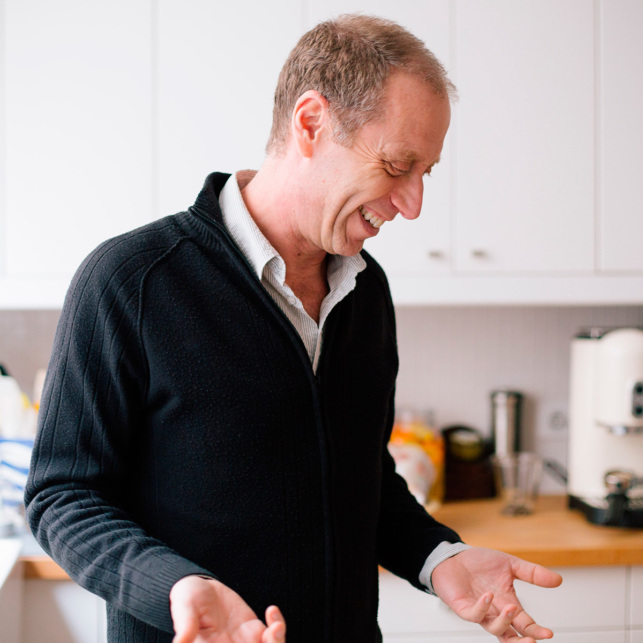
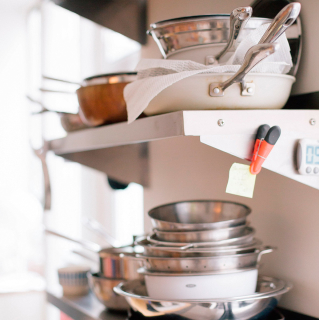
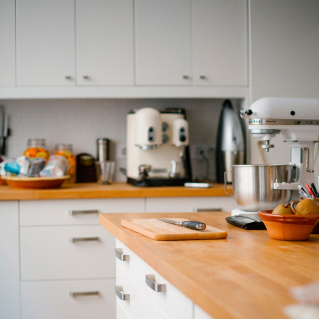
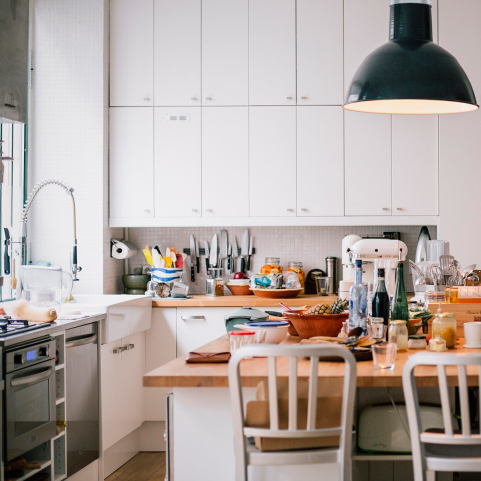
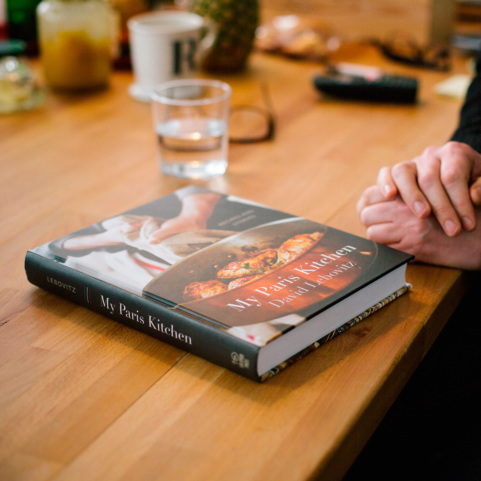
Around the magnificent wooden-topped island that also serves as a dining table for 12, surrounded by a motley collection of pots, pans and accoutrements, David chatted to us about his continuing fascination with Paris and why his latest book was so hard to write.
What prompted you to come and live in Paris in 2004?
I was writing and I thought, well I can write anywhere, I might as well write in Paris. San Francisco had changed quite a bit, it wasn’t the same city that I’d known from the 80s and 90s, and I thought, “Oh, I’ll move to Paris. Why not?” I just took off.
So moving to Paris wasn’t a long-held dream?
No, it’s interesting, because I wasn’t a Francophile before I moved here. I’d worked in a restaurant, Chez Panisse, for most of my life, which was influenced by simple French cuisine, the cuisine of the south, Niçoise cooking, and Californian cuisine is very similar to that. I knew about French cooking, I’d been to pastry school here, but I wasn’t like, “My dream is to live in France and to have dinner with Catherine Deneuve.”
Is the Paris in My Paris Kitchen true to life?
Yes. I said to my publisher that I couldn’t do a fantasy book about Paris, that it wasn’t interesting to me. When you live here you realise that all the stuff about Paris that’s not necessarily glamorous is still great because it’s part of the beauty of the city. And I wanted to show that side of Paris, versus the views that are often presented. It’s a very personal view of Paris, which made it very hard to write because I was digging deeper. It was harder to write than the other books.
Do you have a French readership?
Yes, the French have been very receptive and a third of my readers are from outside the US. My books have been translated into Korean, Greek, Polish, Lithuanian…
Judging from your blog you seem to be under siege from fans. Do you get recognised in the street?
Yes, and that’s fine. I was at an event the other night and everyone wanted to talk to me. Sometimes people corner you and it can be overwhelming, but 99% of people are really nice. Still, one thing I’ve learnt in France is how to say no. People say ‘Can I pick your brain?’ and I say, “Well, no, because I don’t have time: either I have time for you to pick my brain or I have time to spend with my partner or working or reading a book.”
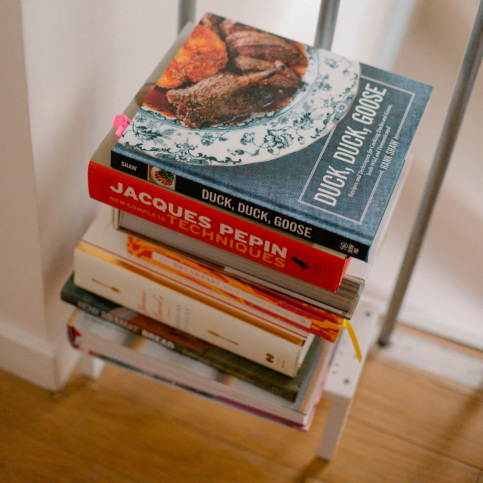
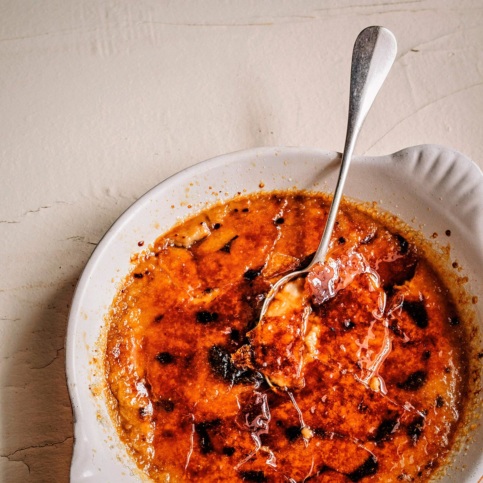
You do food tours as well?
I just do a tour once or twice a year: it’s a Paris and Lausanne gastronomy chocolate tour. I do it mostly because it keeps me in touch with Paris. You know, when you live here you stop going to places like Ladurée [a high end bakery and sweets maker with several Paris locations]. It’s like, ‘Oh I have to go to the 6th? That’s a long way!’ People wonder why I don’t go to this bakery in the 15th to get my baguette or my croissant. But you tend to stay in your neighborhood where you’re a regular. People who don’t live here don’t understand that village feel of the neighborhoods in Paris. It’s one of the things I write about.
Did you choose this neighbourhood where you live now because there were particularly good food shops?
No. I was living in the Bastille and I kind of wanted to stay in the 11th because it’s hard to switch neighbourhoods because you have to meet everybody. They call it the bizutage in French, which is hazing in English, like when you join a club and they punish you in some sort of initiation ceremony. Once you get through that, it’s normally okay. People say Parisians aren’t nice to you if you’re a foreigner, but nowadays they are used to us. You go into the bakery and there are people from all different countries and they are stumbling over their French…
How good is your French?
I do feel a bit blocked by the language. I have French friends who are completely bilingual and speak English as well as we do. But I can’t express myself as well as I would like in French. I can’t yell in French, for example. I had a problem with the phone company and my friend said, “Well, just yell at them in English. They hate that!”
Do you yell a lot?
No! But I do think that Americans are always looking for ways to do things better or faster and I’m like, why don’t you do it this way? So the biggest challenge for me here was learning to deal with the bureaucracy, how long everything takes.
So what about the greatest joy of living here?
It’s easy to forget after you’ve been here a while but you go into a fromagerie or a chocolaterie and you’re like, wow! You buy a box of chocolates and they are amazing. And you go into a bakery and you go downstairs and you talk to the bakers and you see how hard they work and it’s incredible.
So tell us where you buy your bread?
There’s a very, very good bakery called 134 RDT, at 134 rue de Turenne, and he’s got amazing breads and people don’t give him a lot of credit. If I had to name one of the top three bakers in the city it would be Benjamin at 134 RDT.
What about markets?
I tend to go to markets near me like the Richard Lenoir Market, which is the biggest outdoor market in Paris and you can buy anything there. I like the Batignolles Market quite a lot, the Saturday organic market. But it’s all about people knowing you in Paris and if they know you then you get much better service. I only go to people who let me pick out my own stuff. In France you have to stick up for yourself. Being demanding is not considered a fault: it’s considered a quality because it shows that you know what you want.
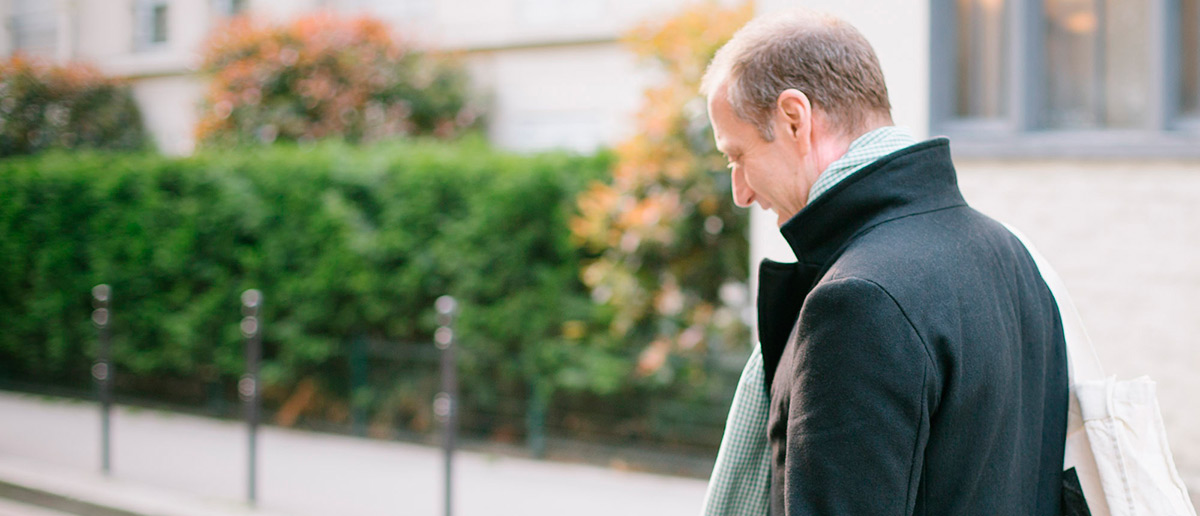
How about regular food shops?
I hate supermarkets, though the ethnic supermarkets can be good and there is a Lidl here that can have some surprising things. Meat and fish, always from the markets. And cheeses from fromageries because I want to support them or from markets. There’s a woman in the market at Popincourt and they have great cheeses and they are reasonably priced and they have new things all the time. And I go to the Marche d’Aligre for spices.
Do you eat out a lot?
I mainly cook, I like to shop and cook for myself and friends. I like A La Biche Au Bois at 45 Avenue Ledru-Rollin. It’s a traditional French bistro which is good, a game specialist, though I find it hard to eat that much food. I just can’t eat a whole chicken. I want a doggy bag.
Any other eating out tips?
It’s not eating out, but I do buy crumpets at Marks and Spencer [various Paris locations]! People are like, you don’t make your own? Or, you don’t make your own croissants? No, I go to the person who is trained to do that and they are very good. A lot of Americans are like that though and I think it’s a mentality that has come about on the internet. Don’t you have bees on the roof and make your own honey?
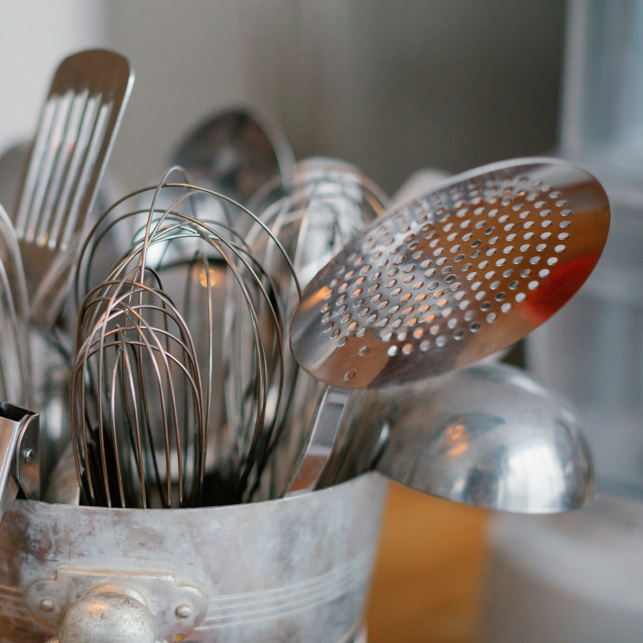
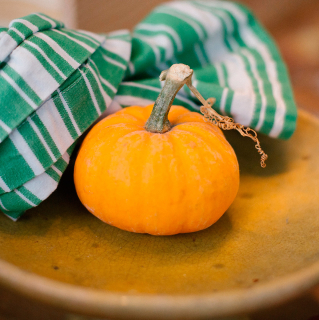
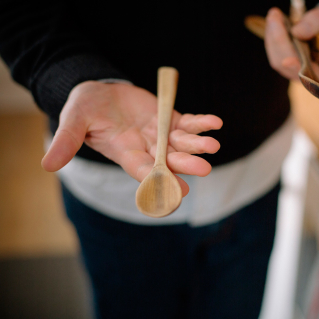
You have an interesting collection of vintage cookware. Where do you buy it?
I pick up stuff at the flea markets, which are known as brocantes, and vide greniers [the French equivalent of car-boot sales]. Like this 50s Le Creuset cocotte – they only made them for a limited time. And I buy things like wooden spoons and all sorts of gadgets with very specific purposes. But my favourite thing is my American ice-cream scoop.
Do you feel like a Parisian or an expat?
I will always feel like an American. But I think we’re all Parisian after a while, and when you live here you start affecting the demeanour. Like I talk French like my partner, which is sometimes not good, because I’m like “Je ne sais pas…” [with a Parisian shrug]. But he’s really funny and nice and warm and optimistic, and he keeps saying, “You’ve got to be more optimistic.” Imagine a French person telling an American that! But I do feel Parisian because I live here and you earn the right to rail about some things because you’ve been here for years and you’re no longer on vacation. And I have a French family now. So I guess I’m always going to be a mix of both cultures.
David Lebovitz’s caramel–chocolate mousse
David Lebovitz’s latest collection of recipes, My Paris Kitchen, is one of those delightful cookbooks that’s consistently entertaining to read whether you cook or not. Lebovitz is a terrific writer and, along with the recipes, the book is a trove of funny and insightful stories about his life in Paris, covering everything from how to pronounce seemingly unpronounceable French words (such as moelleux, meaning meltingly soft) to the etiquette of drinking wine with breakfast (don’t worry, it’s apparently perfectly acceptable).
That said, even if you’re not really a cook, you may want to try some of the book’s surprisingly simple recipes. One of the easiest and most appetising-looking is David’s recipe for salted butter caramel-chocolate mousse, which we’ve shared below. We’ve also picked out images of David’s apricot crumble tart, chocolate cakes with dulce de leche and fleur de sel, and coffee crème brûlée. You’ll find the recipes for these in My Paris Kitchen. In the meantime, we recommend giving the chocolate mousse a try. “One bite will leave you speechless,” Lebovitz promises.

David Lebovitz shares a favourite recipe from his best-selling book, My Paris Kitchen.